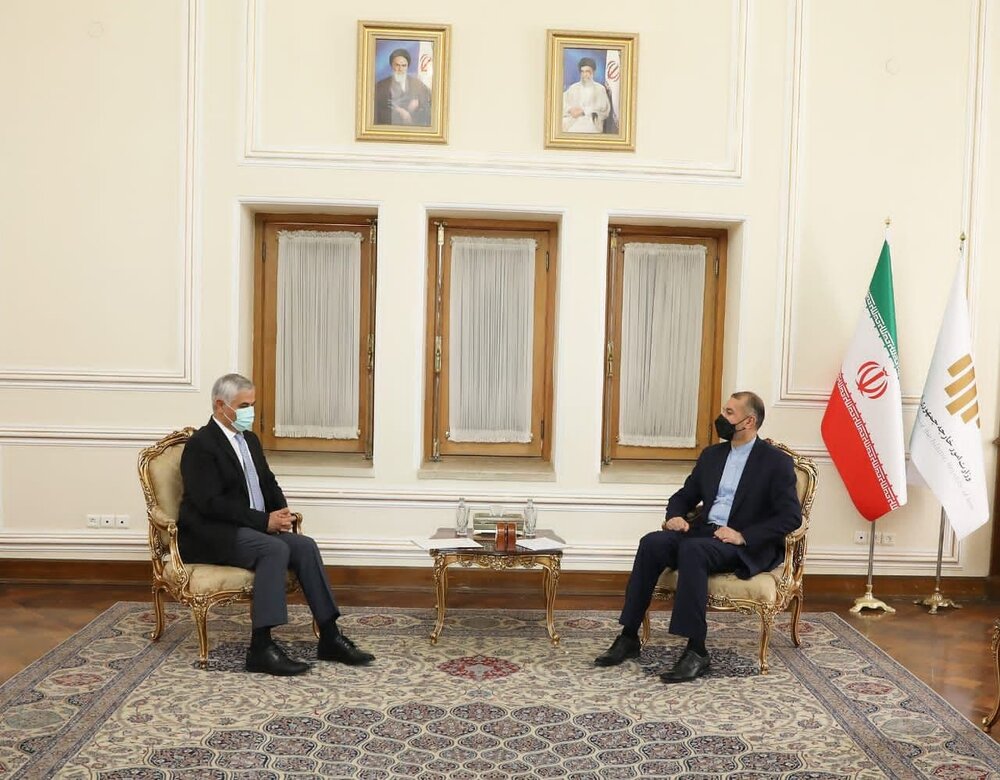
Iran is after bolstering trade ties with European countries as evidenced by the steep rise in share of EU states in the country’s foreign trade.
In recent months, trade relations between Iran and European countries have expanded and majority of EU members seek to gain a share in the Iranian market as well as to deepen commercial ties with Iranian businessmen.
Czech Republic, for instance, had conducted negotiations with Iran’s economic activists over the past three years and intends to reinvigorate trade relations with Iranian traders. Efforts by officials of the two countries brought about 52 million dollars of trade turnover between the two sides in 2015 indicating a 50% rise as compared to the earlier year. What’s more, volume of trade turnover between Iran and Czech experienced a 25% growth in the first 11 months of 2016 and climbed to 59.139 million dollars while the figure for the corresponding period in the previous year stood at 47.433 million dollars.
A brief look at conditions of Czech Republic reveals that the European state holds a population of about 10.6 million people with a Gross Domestic Product (GDP) of around 182 billion dollars. Moreover, the GDP growth rate of the European state reached 3.9 percent in 2015.
Presently, the national per capital income of Czech stands at 18,200 dollars on the basis of a purchasing power of 27,600 dollars while the country’s inflation rate was 0.5 percent in 2015. A total budget of 48.8 billion euros has been allocated for Czech in 2017 while its government is facing a 2.2-billion-euro deficit.
GDP growth rate of Czech Republic was about 2.4 percent in 2014, climbed to about 3.9% in 2015 and reached 4 per cent in the first six months of 2016. Inflation rate for 2015 stood at about 0.5% though it was reduced to around 0.3 percent in the first half of 2016.
Industrial production of Czech has risen by 8.1 percent as compared with the previous year. In addition, manufacturing of motor vehicles, trailers and semi-trailers increased by 16% and automakers enjoyed a 2.9% share in the 8 percent of growth in industrial production. Manufacturing of machinery and equipment also increased by 15 per cent.
As announced by the association of Czech exporters, the European country’s exports volume will soar by 4% by the end of the current year with the most important export destinations being Germany, Slovakia, Britain, America, France and Poland.
The association has pointed to Iran and Cuba as new and interesting markets for Czech exporters and noted that further development of exports in the current and following years will be subject to political issues in North Africa, the Middle East and Greece.
Top trade partners of Czech Republic in order of trade volume include Germany, Slovakia, China, Poland, France, Italy, England, Austria, the Netherlands, Hungary, Russia, America, Spain, Belgium, Switzerland, South Korea, Romania and Sweden. Also, major trade partners in the Middle East are Azerbaijan, UAE, Saudi Arabia, Iraq, Qatar, Georgia, Oman, Kuwait, Lebanon and Iran. Zionist regime also marks a trade partner of Czech Republic.
The volume of economic exchanged between Czech Republic and Iran's neighbors in 2015 were three billion and 180 million dollars with Turkey, about one billion and 176 million dollars with Azerbaijan, Kazakhstan about 685 million dollars, about 897 million dollars with Emirates and Saudi Arabia about 620 million dollars.
Eagerness of Iranian and Czech businessmen formed the impetus for an Iranian economic delegation to travel to Prague at the invitation of Czech’s National Confederation of Industries. The delegation is headed by Chairman of Tehran chamber of commerce industries Mines and agriculture (TCCIMA) Masoud Khansari who is accompanied by more than 30 Iranian companies in the fields of machinery, equipment and mining industry, heavy industry, pharmaceuticals, medical devices, renewable energy, and environmental technologies.
The delegation, during a three-day stay in the capital of Czech Republic, will make visits to car, renewable energy, food and pharmaceutical factories. The joint meeting of the Iranian and Czech delegations will be also held within the three days with participation TCCIMA members as well as officials of the Confederation of Czech Industry.
Previously, a 20-strong delegation of Czech’s Chamber of Commerce along with Deputy Minister of Foreign Affairs Martin Tlapa visited Tehran in September in 2014 when four agreements were signed between the two sides in Tehran, Tabriz and Isfahan. Later that year, another delegation travelled to Tehran and two major contracts were inked between Tehran and Prague.
Also in April 2015, an economic delegation comprising directors of 21 Czech firms visited Iran and held separate meetings with senior Iranian officials.
Minister of Foreign Affairs of the Czech Republic Lubomír Zaorálek also led a huge delegation to Tehran later in 2014 and momentous agreements were made between entrepreneurs of the two countries. Nevertheless, the visit of Iran’s Economy Minister Ali Tayebnia to Czech marked a turning point in economic relations of the two sides since the deal for elimination of extra tax was inked between the two sides and the draft of document to support mutual foreign investment was prepared.
Also in January 2016, minister of industry and trade of the Czech, along with representatives of about 65 companies, visited Tehran and Tabriz, where in addition to signing industrial cooperation contracts, athe two sides reached fruitful agreements in areas of heavy industry and machinery. During the visit, agreements were signed between Iranian and Czech companies in the field of mining and mineral collaborations.
Over the past three years, several measures have been taken to promote joint economic cooperation between Iran and Czech Republic one being formation of a trilateral chamber of commerce among Czech, Iran and Slovakia. Yet another noteworthy measure was holding of the first Joint Economic Commission between the two countries in December, 2016 in Prague, a summit which covered various sectors of industry and mining, energy, finance and banking in addition to health and agriculture.































